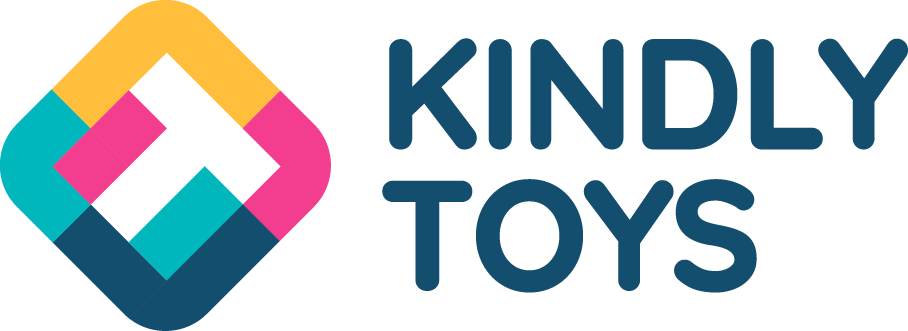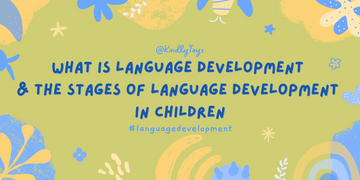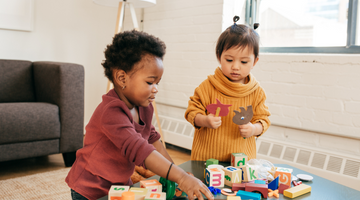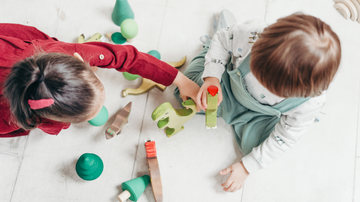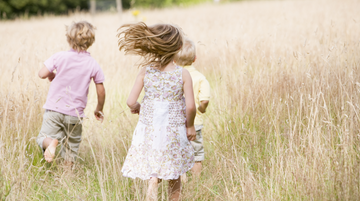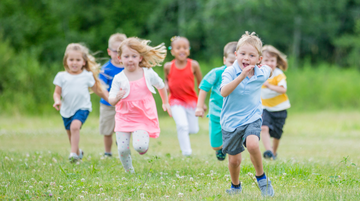As we’ve learned from previous blog posts, children grow and develop rapidly in their first five years across the four main areas of development. These areas are motor, cognitive, social emotional and communication. We’ve covered 3 out of 4 of these development areas, and now we’re going to move on to the last - communication. So, what exactly is communication development?

Mother talking to baby image by Freepik
What is communication development in children?
Communication development is about more than talking. It means all the different ways a child understands and communicates, only part of which are spoken words. In fact, communication skills are crucial to a child’s cognitive and conceptual development, as well as their social, emotional and cultural awareness and understanding. There are different components that make up communication, including speech, language, literacy and communicative competence.
Today, we’re going to focus on the speech and language aspects of communication. First, let’s take a look at the components of speech and language development:
The different components of speech and language development:
- Phonetics and phonology: How to pronounce speech sounds, as well as the understanding of the rules that govern the structure, distribution, and sequencing of speech-sound patterns.
- Semantics: Vocabulary and the understanding of the rules that govern the meaning and context of words or grammatical units. For example, does “dad” mean any man? Or any man with a beard? Or just one particular man?
- Syntax and morphology: The understanding of the rules that govern word order to form clauses, phrases, and sentences. It also concerns the rules that govern change in meaning at word level. For example, is the plural of “cat” “cats”?
- Pragmatics: The understanding of the rules that govern language use across communication contexts. Pragmatics refers to learning the social rules for using language, including adapting your language for who you’re talking to, taking it in turns to speak, and staying on topic. This also includes learning non-verbal communication, including facial expressions, gestures, tone of voice and how this interacts with the words we’re saying.
Stages of Language Development
Babies actually start learning ever since they’re in the womb. Research has shown that they remember stories that they were read to while they were in the womb, as well as recognize their family members’ voices.
Once they’re born, their development tends to progress through the following stages:
3 - 12 months
In the early months of this stage, babies will start cooing, smiling, and laughing. Later on, they will start babbling, playing with easy sounds such as “da da da”. They will also start communicating with gestures like waving and pointing. This is the point where they might sound like they’re talking, but are not using actual recognizable words.
12 - 18 months
At this stage, babies will be able to say their first few words with meaning, such as “da da” and “ ma ma” to call dad and mom. As they mature, children will be able to understand more than they can say, and even follow simple instructions like “Sit down”. Babies will also mostly be using nouns in their speech, such as “book” or “dog”.
18 months - 2 years
Around this age, children will start putting words together into short phrases or sentences, such as “dada throw ball” or “me go”. At this stage, you’ll be able to understand most of what your child says, and they’ll be able to understand a lot of what you say too. They will also start to name objects they feel affectionate towards, such as their toys or stuffed animal friends. When you say simple commands like “Pick up your coat” or “Put your toys away”, they’ll also be able to understand and respond to them.

Mother talking to baby image by shurkin_son on Freepik
2 - 3 years
This is when children begin to form longer sentences, usually consisting of three or four words. They’ll also be able to use some grammatically correct sentences, such as using plurals or past tense. Their conversation skills at this point will also improve, as they start to understand and respond to you more often.
3 - 4 years
Reaching this age, our little ones will be able to speak more clearly, and strangers will be able to understand them. You can expect longer, more complex conversations about your child’s thoughts and feelings. They will also start to ask questions such as “Who”, “What” and “Why”.
4 - 5 years
It’s approaching story time! Children’s language development at this age has become more advanced, as they are able to tell stories and simple jokes. So, you can totally expect some interesting stories at this age, especially when they start going to pre - school. They’ll want to talk about a wide range of topics, and their vocabulary will keep growing. They will also show understanding of basic grammatical concepts, and start using sentences with words like “because”, “if” or “so”. At this stage, they’ll also be able to follow requests, and can even help around the house with some simple chores, like putting away their toys or clearing the table.
